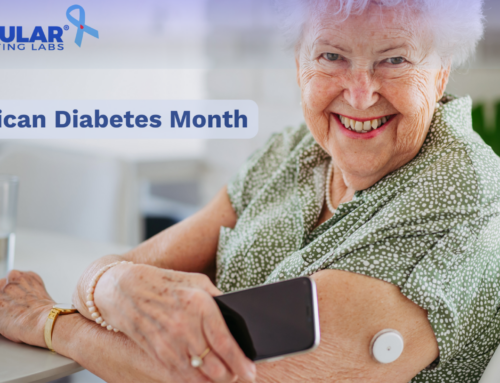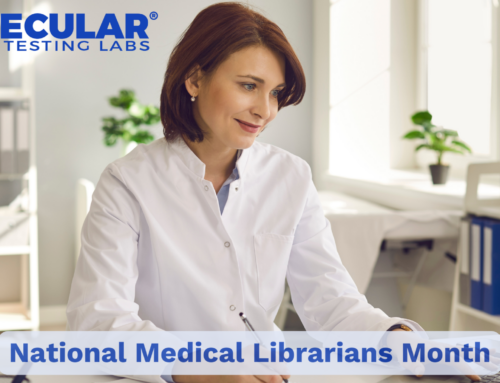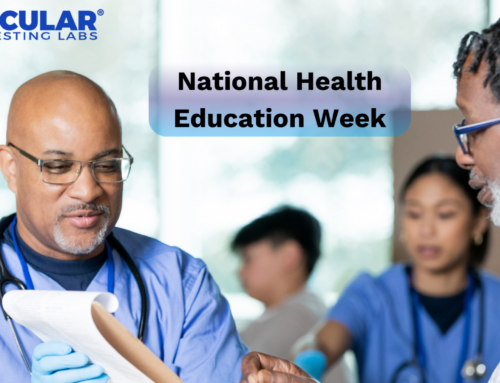
Creating Access to Quality Healthcare in LGBTQIA+ Communities
Share:
June is LGBTQIA+ Pride month, and we are proud to celebrate this month with our staff while we work to break down stigmas and disparities in access to top-quality healthcare for LGBTQIA+ patients. Molecular Testing Labs is working to empower our employees and our community to participate fully in healthcare. We partner with state and local departments of health, as well as local governments, to bring laboratory testing to every community. We are a proud member of the Business Action to End HIV Coalition and the Health Action Alliance, working to improve work-life balance and access to quality healthcare for all.
LGBTQIA+ patients face myriad roadblocks when accessing equal and equitable healthcare. While biases and discrimination account for a significant portion of these obstacles, a lack of training and awareness about creating an inclusive medical practice are also strong indicators of adverse outcomes for members of the LGBTQIA+ community. Laboratory medicine is poised to improve access to quality healthcare for every community. Molecular Testing Labs is improving healthcare through our technology, research, and presence in the room where legislation happens.
According to the American Association of Clinical Chemistry (AACC) laboratory medicine is uniquely positioned to improve disparities in healthcare. Molecular Testing Labs is taking advantage of this unique position by partnering with state and local health departments to address racial, gender, sexual orientation, or socioeconomic gaps in care and access to diagnostic testing in marginalized communities.
According to James March Mistler, MS, MLS(ASCP)CM, ASCLS-CNE, Chair of the Diversity Advocacy Council at the American Society for Clinical Laboratory Science, LGBTQIA+ patients face a range of biases, stigma, ignorance, and discrimination in healthcare, leading to higher rates of adverse health outcomes.
In their 2016 report on understanding the needs of LGBTQIA+ patients, The Fenway Institute, through their National LGBT Health Education Center, points out that many medical clinics and professionals fail to create welcoming environments due to a severe lack of training in LGBTQIA+ healthcare needs. Physicians in North America receive an average of only 5 hours of training on LGBTQIA+ needs. This inadequacy has created gaps in care due to differing recommendations from various governing bodies, such as the Centers for Disease Control and Prevention (CDC) and the United States Preventative Services Task Force (USPSTF). Because the ACA has chosen to adhere to the USPSTF guidelines, all insurance policies may not cover testing included in the CDC’s more complex testing recommendations. These discrepancies may result in confusion and avoidance regarding recommended testing for LGBTQIA+ patients. Molecular Testing Labs is working to combat this by creating mail-order at-home testing kits.
Our self-collect testing kits reduce barriers to accessing care by eliminating the need to visit a clinic, thereby decreasing potential negative encounters with a medical professional for LGBTQIA+ patients and improving overall experiences with the medical system. Through our work with state and local health departments, we are working to reach patients in spaces where they feel comfortable, reducing stigma and lowering the bar to entry into receiving quality and appropriate healthcare.
Located in Washington State, which has been at the forefront of offering financial assistance to patients at risk for HIV, Molecular Testing Labs accepts samples for the required diagnostic testing for participation in the Washington State PrEP Drug Assistance program. Patients can eliminate the need to locate and make an appointment at a clinic by utilizing our self-collect testing kits, leading to more extended participation in the program and reducing the spread of HIV.
We welcome all patients at Molecular Testing Labs, and we are excited to see where we can improve access to care for LGBTQIA+ patients by lowering barriers to entry and offering easy, convenient, and accurate testing.
We encourage you to continue learning more and raising awareness about the unique healthcare needs of the LGBTQIA+ community. Sharing this post on social media is a great way to bring the discussion to the forefront.
References
- Scott, Kimberly. (2021, September 25). AACC Tackles Health Disparities Through New Health Equity and Access Division. AACC.org. https://www.aacc.org/cln/cln-daily/2021/aacc-tackles-health-disparities-through-new-health-equity-and-access-division
- March Mistler, J. (2023, April 19). LGBT Healthcare. ASCLS.org. https://ascls.org/lgbt-healthcare/
- National LGBT Health Education Center. (2016, March). Understanding the Health Needs of LGBT People. https://lgbtqiahealtheducation.org/wp-content/uploads/LGBTHealthDisparitiesMar2016.pdf


